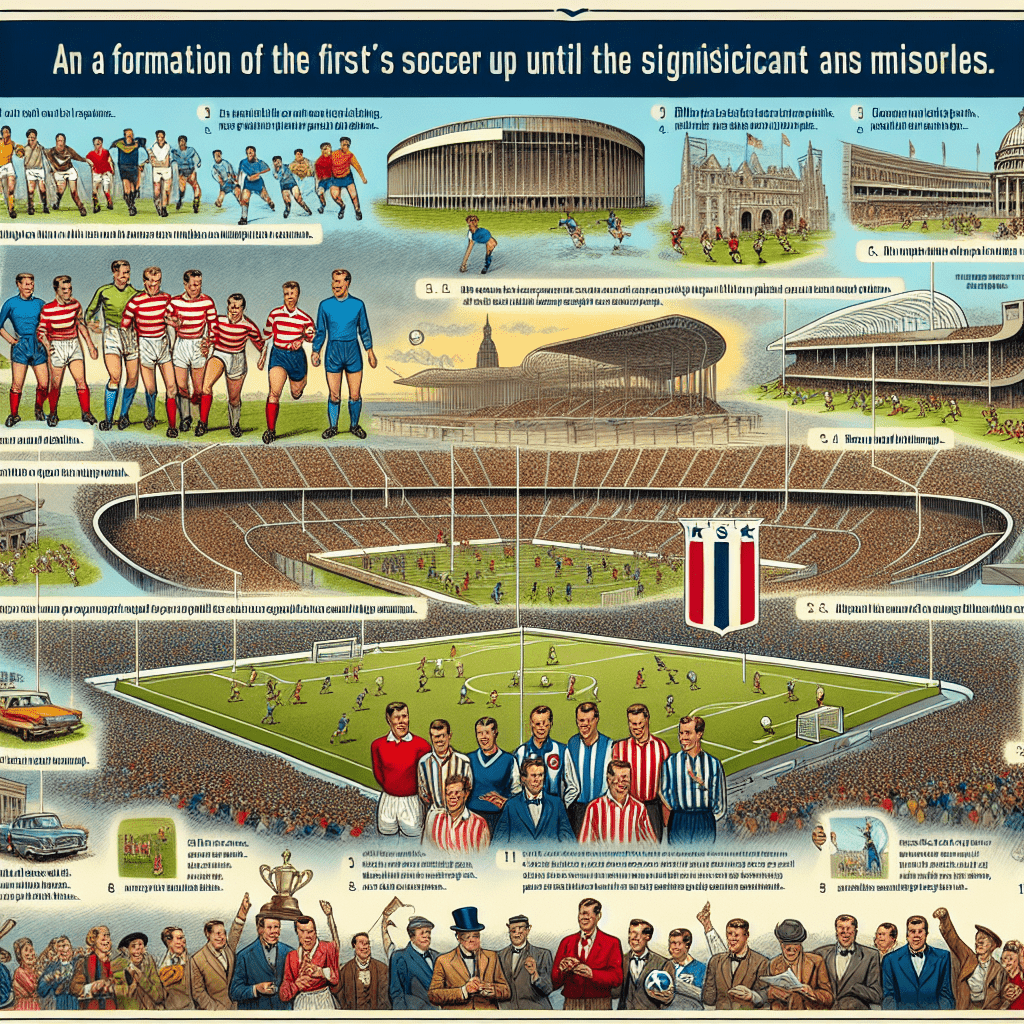[ad_1]
Since its inception in 1996, Major League Soccer (MLS) has undergone a transformation that has not only altered its own fate but has also changed the landscape of American soccer. From playing in mostly empty American football stadiums to selling out soccer-specific stadiums, MLS’s journey mirrors the growing passion for soccer in the United States. This article presents a detailed narrative on the evolution of MLS and its impact on American soccer at large.
Formation and Early Years
The journey of MLS began as part of the United States’ bid to host the 1994 FIFA World Cup. The promise of establishing a professional soccer league was a condition of FIFA’s selection of the United States as hosts. Following the success of the World Cup, MLS was officially formed in 1993, beginning play in 1996 with 10 teams.
Rapid Expansion and Growth
From those early days, MLS has expanded to 28 teams, with plans for further expansion. This growth reflects not only the increasing interest in soccer but also the league’s successful strategies in promoting the sport across the country.
Investment in Soccer-Specific Stadiums
One of the pivotal strategies of MLS has been the move towards soccer-specific stadiums. This transition has provided a better fan experience and has helped in the cultivation of a unique soccer culture in various American cities.
Attracting Global Talent
Another significant aspect of MLS’s evolution is the increasing attraction of global soccer stars. Players like David Beckham, Thierry Henry, and more recently, Zlatan Ibrahimovic and Gonzalo Higuaín, have graced the league, elevating the quality of football and drawing global attention to American soccer.
Building Homegrown Talent
Alongside international stars, MLS has focused on developing homegrown talent. Through initiatives like the Homegrown Player Rule, the league has nurtured local talent, providing a pathway to professional soccer for American youth.
Integration with Global Soccer
MLS’s journey has also seen it becoming an integral part of the global soccer ecosystem. American teams and players are now a regular part of international tournaments and competitions, showcasing the league’s growing stature on the world stage.
Impacts on American Soccer Culture
The evolution of MLS has had a profound impact on American soccer culture. It has not only increased the popularity of the sport but has also fostered a vibrant fan culture, with supporters’ groups and match-day traditions that are unique to the American soccer experience.
Key Takeaways
- Growth and Expansion: MLS’s expansion from 10 teams in 1996 to 28 teams demonstrates the growing interest in soccer in the United States.
- Soccer-Specific Stadiums: The move towards soccer-specific stadiums has improved the fan experience and helped establish soccer cultures in various cities.
- Global Talent: Attracting international stars has raised the league’s profile and improved the quality of play.
- Homegrown Talent Development: MLS’s focus on nurturing local talent has provided a valuable pathway for American youths into professional soccer.
- Global Integration: The participation of MLS teams and players in international competitions underscores the league’s growing relevance in global soccer.
Frequently Asked Questions (FAQs)
When was MLS founded?
Major League Soccer was officially founded in 1993, with the inaugural season kicking off in 1996.
How many teams are currently in MLS?
As of the latest season, MLS consists of 28 teams.
What was the first soccer-specific stadium built for an MLS team?
The first soccer-specific stadium built for an MLS team was Columbus Crew Stadium, now known as Historic Crew Stadium, which opened in 1999.
Has the quality of play in MLS improved?
Yes, the quality of play in MLS has significantly improved over the years, thanks in part to the investment in international stars and the development of homegrown talent.
How does MLS contribute to the growth of soccer in the United States?
MLS contributes to the growth of soccer in the United States by providing a professional platform for players, attracting international talent, and fostering a vibrant soccer culture among fans.
[ad_2]






